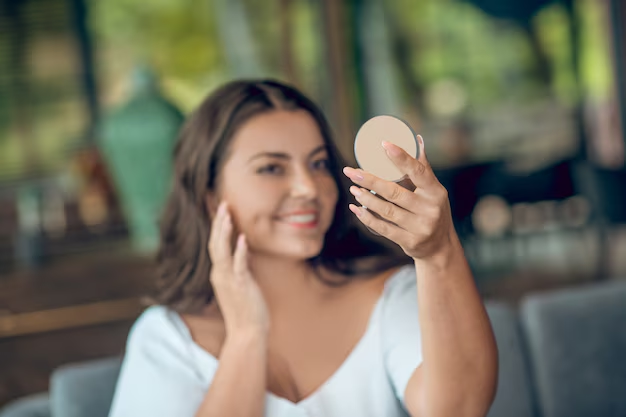Breaking the Cycle: Effective Strategies for Managing Hormonal Acne
Few things betray our attempts to put our best face forward like a sudden outbreak of acne, particularly hormonal acne. This type of acne is caused by hormonal fluctuations and isn’t just the concern of teenagers; it affects adults too, causing frustration and distress. If you've been grappling with stubborn acne that's resistant to typical treatments, chances are it's a hormonal issue. But fret not! Understanding the nature of hormonal acne and learning how to manage it can significantly boost your self-esteem and skin health. Here’s an in-depth look at how you can help manage hormonal acne effectively.
Understanding Hormonal Acne
What Causes Hormonal Acne?
Hormonal acne is, as the name suggests, closely linked to fluctuations in hormones. This is why it's common to see breakouts during puberty, menstruation, pregnancy, and menopause. The primary hormones responsible are androgens, which increase oil production in the skin, often leading to clogged pores and acne.
Identifying Hormonal Acne
Recognizing hormonal acne is the first step to addressing it. Here are common signs:
- Location: Hormonal acne typically appears on the lower part of the face, including the jawline, chin, and neck.
- Type of acne: It often manifests as deep, cystic, and painful bumps rather than surface-level blackheads or whiteheads.
- Timing: Women might notice breakouts coinciding with their menstrual cycle.
Lifestyle Adjustments for Healthier Skin
Diet and Nutrition
A well-balanced diet can profoundly impact your skin's health. Here’s what you can consider incorporating or adjusting:
- Consume anti-inflammatory foods: Integrate foods rich in omega-3 fatty acids, such as salmon and walnuts, which can help reduce inflammation.
- Limit dairy and high glycemic foods: Some studies suggest these can exacerbate acne, although results can vary by individual.
- Stay hydrated: Drinking plenty of water is crucial for skin hydration and detoxification.
Stress Management
Stress can be a significant trigger for hormonal fluctuations. Methods for reducing stress include:
- Mindfulness and Meditation: Regular practice can help lower stress levels, potentially decreasing hormonal breakouts.
- Exercise: Regular physical activity helps control weight, reduce stress, and improve blood circulation to the skin.
Sleep Hygiene
Lack of sleep can lead to increased stress levels and hormonal imbalances. Aim for 7-9 hours of quality sleep per night to help regulate your body's natural rhythms and repair skin tissue.
Skincare Routine Tweaks for Hormonal Acne
Gentle Cleansing
Cleansing is vital, but harsh scrubbing can do more harm than good. Opt for:
- Clean, Gentle Formulas: Products with soothing ingredients like chamomile or aloe vera can cleanse skin without irritation.
Targeted Treatments
Incorporate over-the-counter products that cater specifically to acne-prone skin:
- Salicylic Acid: Helps unclog pores by exfoliating dead skin cells.
- Benzoyl Peroxide: Kills acne-causing bacteria on the skin’s surface.
Moisturize, Moisturize, Moisturize
Even acne-prone skin needs hydration:
- Use Non-Comedogenic Moisturizers: These don't block pores and help maintain the skin’s barrier.
Sunscreen: An Essential Step
Exposure to the sun can exacerbate acne and lead to hyperpigmentation:
- Daily Sunscreen Use: Opt for a lightweight, non-comedogenic formula to protect and calm the skin.
Complementary and Alternative Solutions
Herbal Supplements
While more research is needed, some find relief using herbal supplements:
- Evening Primrose Oil: Known for its skin healing properties.
- Spearmint Tea: Anecdotally reported to help reduce androgens and clear skin.
Professional Skin Treatments
If acne persists, exploring professional treatments might be worthwhile:
- Chemical Peels: Can remove dead skin cells and reduce blockage.
- Laser Therapy: Targets the deeper layers of the skin for more effective results.
Consult a Dermatologist
When in doubt, reaching out to a dermatologist is a prudent option. They can provide tailored insights and suggest treatments that coincide with your skin type and acne severity.
Top Tips for a Clearer Complexion
Keep It Simple
Avoid overloading your skin with treatments. Sometimes less is more, and a minimalistic approach can prevent irritation.
Consistency is Key
Consistency in your skincare routine is crucial. Results take time, and quick fixes rarely deliver long-term solutions.
Stay Informed and Adaptable
As your body changes, so should your skincare. Stay informed on developments in acne treatments, and don't hesitate to adjust routines as necessary.
An effective strategy to manage hormonal acne involves understanding its nature, adopting a balanced lifestyle, and tailoring a skincare regimen carefully. Embrace patience and persistence on your journey towards clearer skin. This guide should serve as a reliable companion, empowering you with the knowledge to foster healthier skin.
Handy Takeaway Tips for Managing Hormonal Acne 🌟
- Dedicate Time for Self-Care: Stress management can play a huge role in maintaining hormonal balance.
- Rethink Diet Choices: Incorporate anti-inflammatory foods and stay hydrated.
- Prioritize Restful Sleep 🛌: Aim for 7-9 hours to recharge and repair.
- Keep Skincare Gentle: Choose non-comedogenic products and maintain a simple routine.
- Consult for Persistent Issues: Professional advice can offer personalized solutions.
Managing hormonal acne may seem challenging, but with the right approach and mindset, clear skin is within reach!

